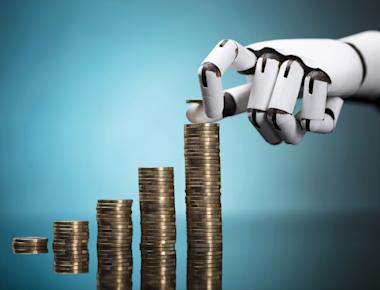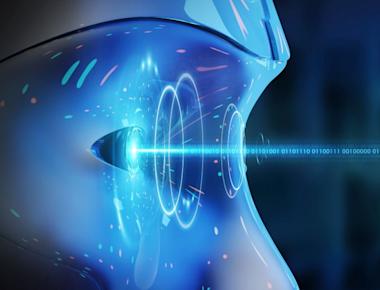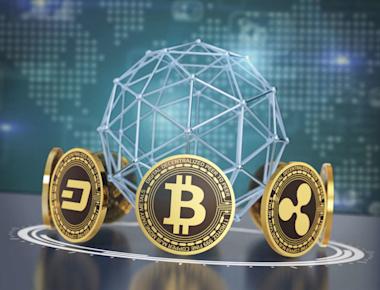

Throughout history, humans have tried to understand their own intelligence. It started with Aristotle’s creation of syllogism and its usage of deductive reasoning. However, over time humans have moved beyond trying to figure out their own intelligence and have instead tried to develop an artificial version of it themselves. This is known as artificial intelligence. Artificial intelligence is already quite prominent in all our lives, from the famed voice assistants Siri, Google, and Alexa to autonomous vehicles. However, the introduction of artificial intelligence led to a wave of frenzied people worrying about their jobs being lost to robots. In this article, we will examine the future repercussions of the introduction of artificial intelligence with regard to economics.
Now, before we go into the specifics of the economics of artificial intelligence, it’s important that we understand where artificial intelligence is going. The International Data Corporation stated the worldwide revenue for artificial intelligence will increase by 16.4% over the course of the year 2021, and this would lead it to have a total worldwide revenue of about 327.5 billion dollars. In 2024, artificial intelligence is expected to rise to about 500 billion dollars in total revenue. It’s also important that we understand what industries artificial intelligence may affect. First, an industry that will be tremendously impacted by artificial intelligence is the automotive industry, since cars are moving towards being autonomous, which means the integration of artificial intelligence. Furthermore, we can also look at artificial intelligence’s current effects in Manufacturing, where artificial intelligence is able to produce a plethora of goods in an instant. Healthcare may also be suitable for artificial intelligence deployment as artificial intelligence is better at detecting diseases and scanning for them. And of course, customer service has become a hotspot for artificial intelligence with the introduction of virtual assistants. Artificial intelligence will become one of the most important parts of the future of our society and the future of our world, and thus, we must be prepared to understand the full extent of how artificial intelligence will transform not only industries but also how they will transform our lives.
So why does artificial intelligence pose such a risk to our economic stability? Well, artificial intelligence not only changes the way we work and the way our industries perform but also who is actually doing the performing. With artificial intelligence, many fear that long-standing human jobs may be replaced with artificial intelligence. Moreover, with the introduction of artificial intelligence, many can stand to wonder what happens to the workforce left. Does this mean that the workforce must be trained in technology and artificial intelligence management? Does this mean that only those with higher education will have a place in society? All of these different questions are things that run through the minds of economists, business leaders, technology experts, and of course, the average individual. One way to understand what may happen with the greater implementation of artificial intelligence is by looking at a similar example: semiconductors. With the introduction of semiconductors, the cost of doing math decreased because semiconductors were supposed to make it easier to do arithmetic. Now, once semiconductors came into play, there were a few different things that happened with arithmetic. First, of course, the price of doing arithmetic went down, and this led to all the things that arithmetic could be used for going up in prices while things that were used to substitute arithmetic processes went down in cost. Additionally, people started to use arithmetic more because the semiconductor allowed for it to be used at a lower cost which brought it into more and more industries. So how does this relate to artificial intelligence? Well, the whole point of artificial intelligence is that as it grows and becomes implemented more and more into our society, it becomes more accessible. And the greater accessibility of artificial intelligence will, of course, lead to its cost going down and more people can implement it, but it also means that industries will start using artificial intelligence more, and just like with arithmetic processes, the substitutes for artificial intelligence will have to go down in cost as well. However, things that artificial intelligence can use to facilitate would go up in value just like it did with arithmetic processes. So the whole problem with artificial intelligence is how it’s affecting the value of the things around it. When artificial intelligence becomes introduced into an environment, how will that affect the jobs of everybody around it? Artificial intelligence can do math faster than you and I. Artificial intelligence can drive cars, and; they can notice things that we aren’t able to understand. and this is why artificial intelligence may pose a danger to some people because they see it as their replacement. And this is where the workforce question comes into play. Artificial intelligence can do a lot of things, and its analysis and interpretation of different entities are what make it so critical in the workforce. However, without humans running the artificial intelligence, telling it where to look, and putting things in front of it, artificial intelligence is essentially useless. Thus, we see that humans still hold value when it comes to the management of artificial intelligence and directing it where we want it to go. For example, we can look at artificial intelligence as an arrow. We can see humans as the archer. Artificial intelligence by itself would be useless because if you just have an arrow, it is not going to do anything. You would need an archer to pull back the string on the bow and shoot the arrow. And in the same way, we can look at artificial intelligence. Without humans directing artificial intelligence to where we want it to go, without managing it, and without ensuring its smooth processes, artificial intelligence is useless.
“Hey Siri, can you text Aaron”? It is only the beginning of what artificial intelligence can do. In the years to come, artificial intelligence will grow in magnitude and prevalence, being implemented into industries all around us. However, when it comes to the question of how artificial intelligence will affect us economically, it is clear that the effects will be benevolent.
Sources
IDC Forecasts Improved Growth for Global AI Market in 2021. IDC. (n.d.). https://www.idc.com/getdoc.jsp?containerId=prUS47482321.
Quarterly, M. K. (2019, May 11). The economics of artificial intelligence. McKinsey & Company. https://www.mckinsey.com/business-functions/mckinsey-analytics/our-insights/the-economics-of-artificial-intelligence.
Schroer, A. (2021). What is Artificial Intelligence? How Does AI Work?: Built In. What is Artificial Intelligence? How Does AI Work? | Built In. https://builtin.com/artificial-intelligence.
Subscribe to our newsletter!
Quick Links
Legal Stuff




